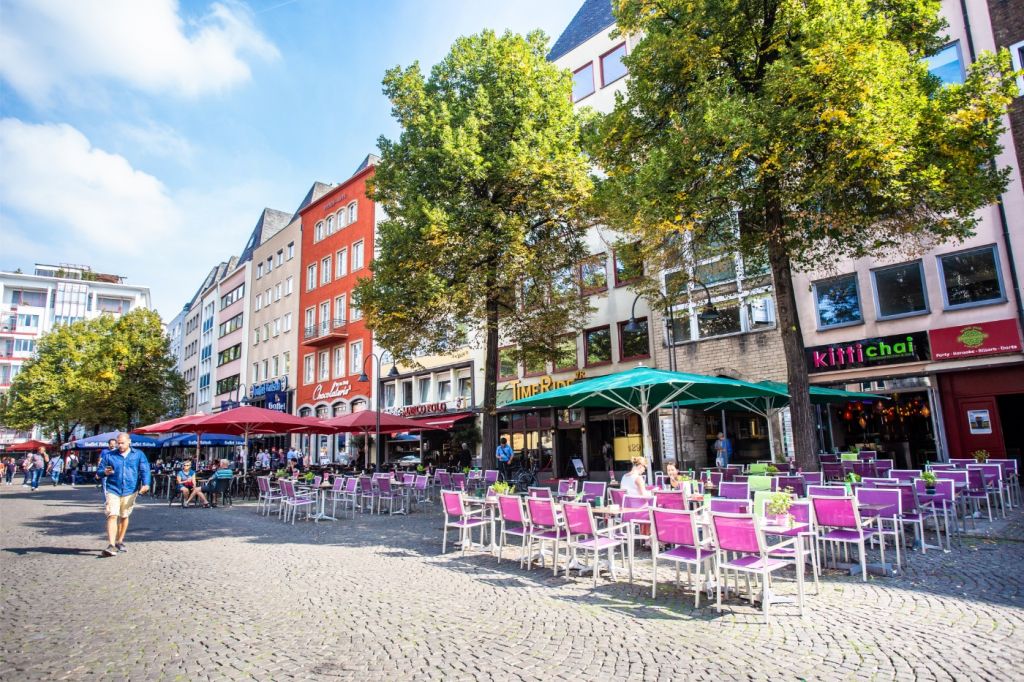When dining out in Germany, you may wonder whether to leave a tip and, if so, how much is appropriate. This guide explains German restaurant tipping and shows when and how much to tip.
In German restaurants, tipping is customary but not required. It is typical to add a 5-10% tip to the bill for good service, or simply round up to the nearest euro.

When you dine in Germany, understanding the tipping etiquette ensures you navigate the experience with ease. Your generosity is often seen as a gesture of satisfaction with the service provided.
| Establishment Type | Suggested Tip | Additional Information |
|---|---|---|
| Sit-down Restaurants | About 10% of the bill | If satisfied with the service |
| Café/Casual Dining | Round up to the nearest euro | Common practice for smaller bills |
In German restaurants, tips are not mandatory but are customary to show appreciation for good service. Trinkgeld, the German term for tip, is generally around 5-10% of the bill. For a meal at a sit-down restaurant, tipping about 10% is standard if you're happy with the service. At a café or a casual dining spot, simply rounding up to the nearest euro is common practice.
When receiving table service, your server will usually bring the bill to your table. In Germany, it's common to pay in cash, and you should indicate the total amount you wish to pay, including the tip, when handing over the money. If paying by credit card, you might need to tell your server the total amount you'd like to charge to the card, as the concept of adding a tip on the card is not as widespread. Note that some smaller venues may not accept cards, so having euros on hand is advisable.
While dining out is the most common scenario for tipping in Germany, there are several other circumstances where showing your gratitude with a tip is appreciated. These situations can vary from a simple ‘thank you’ to staff at hotels to acknowledging the service you receive from those who help make your experience more enjoyable.
When you visit a bar, pub, or café, it's typical to tip the bartender or server if you receive good service. Rounding up the bill or tipping 5-10% of the total amount is considered polite. For cloakroom attendants, you might leave €1 per item.
In Germany, tipping at restaurants strikes a balance between appreciation and custom—understanding this etiquette is key during your visit.
When you dine out in Germany, it's polite to leave a tip as a gesture of satisfaction with the service provided. Germans typically tip by rounding up the bill, so if your meal costs €19, you might leave €20. In German culture, particularly in places like Berlin, tipping is a sign of good manners rather than a strict obligation. As a visitor, it’s courteous to follow these customs and acknowledge good service when you encounter it.
Unlike some countries, restaurants in Germany usually do not include a service charge in the bill. This means that, legally, the price you see on the menu is what you're obliged to pay. However, a tip of about 5-10% is customary for good service. If you take a taxi in Germany, it's also common to round up to the nearest euro for short trips or add a small percentage tip for longer distances.
When dining out in Germany, understanding the local customs, including those related to money and communication, will enhance your restaurant experience. Keep these tips in mind to navigate tipping with ease.
In many German restaurants, especially smaller or local establishments, cash is king. It's a good idea to carry Euros as not all places accept credit cards. Even when credit cards are accepted, servers often prefer cash for tips, making it simpler for you to directly reward good service.
Before you travel, it helps to understand the currency exchange rates between your home currency and the Euro. Use services like Wise to get a sense of the current rates. Carrying small denominations can make tipping more straightforward, as you might want to round up the bill or leave an additional 5-10%.
Although many in the service industry speak English, especially in tourist areas, learning a few German phrases goes a long way. An important phrase is "Stimmt so," which means "Keep the change." Expressing your appreciation in German also reflects well on you as a tourist.
If you're mindful of expenses but still want to tip, consider the service's value rather than a fixed percentage. Given that the minimum wage in Germany may not always be reflective of the cost of living, tipping — even modestly — is a kind gesture for good service. A small tip is better than none.